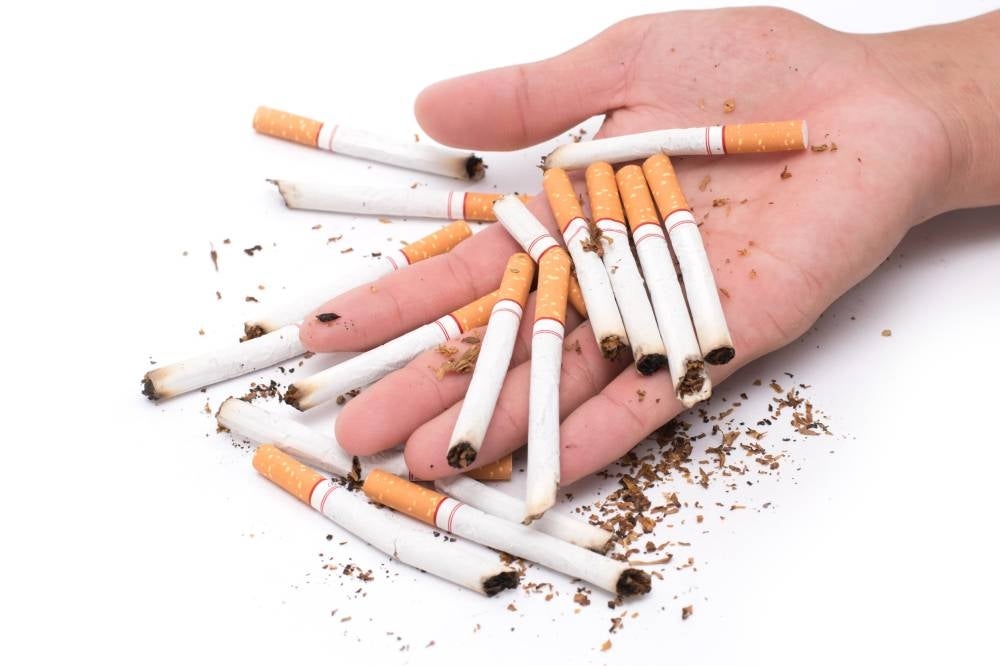Smoking ban for future generations safeguards B40 group, says think tank
AMY EZREEN
KUALA LUMPUR - The government's plan to outlaw smoking and vaping for upcoming generations will assist safeguard low-income earners who smoke more than higher-income groups, according to a think tank.
Smoking prevalence was the highest among the bottom 40 per cent (B40) of income earners at 65 per cent, followed by the middle 40 per cent (M40), and five per cent among the top 20 per cent (T20), according to the Social and Economic Research Initiative (Seri).
The research initiative was led by respiratory physician Dr Helmy Haja Mydin, who was also the technical advisor on the Tobacco and Smoking Control Bill to Health Minister Khairy Jamaluddin.
In a statement released yesterday, Seri claimed that those with low socioeconomic positions unfairly bear the burden on their health by using commercial cigarette products.
Lower-income people in Malaysia suffered difficulties in obtaining high-quality medical treatment, according to the research group, which focused on policy relating to inequality.
"Some of the indirect expenses that disproportionately affect the poor are difficulties getting time off from work, a lack of physical access to a hospital or clinic, the lack of health care services in rural regions, and the cost of missing school,” the statement read.
Low socioeconomic status Malaysians, who were more likely to be less educated and had poor health literacy also faced additional obstacles to cease their smoking habit due to their ignorance of smoking cessation therapies.
Seri said mental health issues were also more common among people in lower income groups who suffered more financial difficulties, discrimination, and hazardous living situations, producing stress that supported smoking as a relief.
Smoking prevalence was highest among Malaysians with secondary and primary education, at 25 per cent and 24 per cent, respectively, according to the National Health and Morbidity Survey (NHMS) 2019, whereas it is just 13 per cent among those with university education.
The current smoking prevalence in Malaysia is 21.3 per cent or around 4.9 million people who are 15 years of age and older.
Currently, over four out of ten men smoke in the country.
Seri highlighted studies from the Centers for Disease Control and Prevention (CDC) of the United States that revealed more cigarette retailers in underprivileged areas.
Since low-income people were more likely to fall prey to marketing ploys, Seri said that tobacco companies deliberately targeted this demographic.
According to the think tank, poorer individuals suffer the worst effects of secondhand smoke since smoke-free laws are less likely to be implemented in their places of employment and residence.
Due to the overcrowded conditions of these residences, children were more likely to be exposed to secondhand smoke.
"Policymakers must consider how smoking affects the B40 group and avoid adding to their suffering by burdening them with smoking-related illnesses."
The think tank asked lawmakers from all political parties to endorse the Tobacco and Smoking Control Bill, which would outlaw the sale of tobacco and e-cigarettes to people who were born after January 1, 2005 and forbid them from ever being able to purchase them lawfully during their lifetimes.
"Such actions will unquestionably assist in achieving the long-term objective of lowering health care inequity.
“However, effective enforcement is crucial, and the government must keep working to increase health care literacy and offer the B40 group fully subsidised quit-smoking treatments,” explained Seri.
Muda and a Muar MP Syed Saddiq Syed Abdul Rahman said he might not support the tobacco bill because of three issues: the effect on small retailers; personal freedom and a potentially slippery slope toward the banning of other products like alcohol and sugary drinks; and an increase in the trade in illegal cigarettes.
Yesterday, Khairy said that the cabinet approved the tobacco bill on Wednesday and it would be debated in the upcoming Parliament session.










